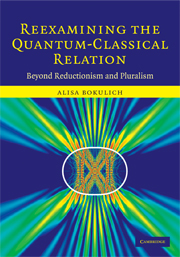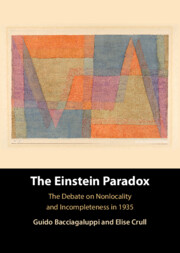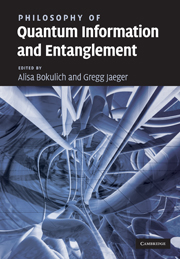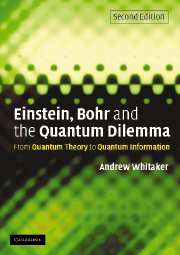Reexamining the Quantum-Classical Relation
Classical mechanics and quantum mechanics are two of the most successful scientific theories ever discovered, and yet how they can describe the same world is far from clear: one theory is deterministic, the other indeterministic; one theory describes a world in which chaos is pervasive, the other a world in which chaos is absent. Focusing on the exciting field of 'quantum chaos', this book reveals that there is a subtle and complex relation between classical and quantum mechanics. It challenges the received view that classical and quantum mechanics are incommensurable, and revives another, largely forgotten tradition due to Niels Bohr and Paul Dirac. By artfully weaving together considerations from the history of science, philosophy of science, and contemporary physics, this book offers a new way of thinking about intertheory relations and scientific explanation. It will be of particular interest to historians and philosophers of science, philosophically-inclined physicists, and interested non-specialists.
- New philosophical accounts of scientific explanation and intertheory relations in the context of classical mechanics and quantum mechanics
- First extended account of Dirac's philosophy of science, new account of Heisenberg's philosophy, and new interpretation of Bohr's correspondence principle
- All scientific, historical and philosophical terms are clearly defined, and an extensive bibliography is included for further reading
Reviews & endorsements
'Bokulich fully appreciates many subtleties that practising physicists occasionally understand intuitively, but are rarely explicit about. Her ideas are refreshing and original and presented with clarity and erudition. I unreservedly recommend her book to anyone wanting to understand the intricate connections between the classical and quantum worlds.' Sir Michael Berry
'… this is a courageous book. More importantly, it is also a very interesting one, and my personal opinion is that Bokulich is typically right whenever she is controversial. This opinion is fed not only by the frequent strength of her arguments, but also by my impression that, as far as 20th century philosophers - as opposed to scientists like Einstein and Bohr - have set its agenda, the philosophy of science has become separated from the actual science it is supposed to describe by a wide gap. Consequently, scientists rarely take notice of its introverted debates … Bokulich's book obviously attempts to bridge this gap. And successfully so, I would say.' N. P. Landsman
'… Alisa Bokulich dwells extensively on the history of quantum mechanics and the philosophical ideas of its founding fathers and also on recent developments in physics. [This] book has thus become a goldmine of information and original ideas about quantum mechanics and its philosophy, in addition to being a philosophical treatise about the relation between theories.' Dennis Dieks, Metascience
Product details
December 2008Hardback
9780521857208
208 pages
253 × 178 × 6 mm
1.4kg
8 b/w illus.
Available
Table of Contents
- 1. Intertheoretic relations: are imperialism and isolationism our only options?
- 2. Heisenberg's closed theories and pluralistic realism
- 3. Dirac's open theories and the reciprocal correspondence principle
- 4. Bohr's generalization of classical mechanics
- 5. Semiclassical mechanics: putting quantum flesh on classical bones
- 6. Can classical structures explain quantum phenomena?
- 7. A structural approach to intertheoretic relations
- References
- Index.






